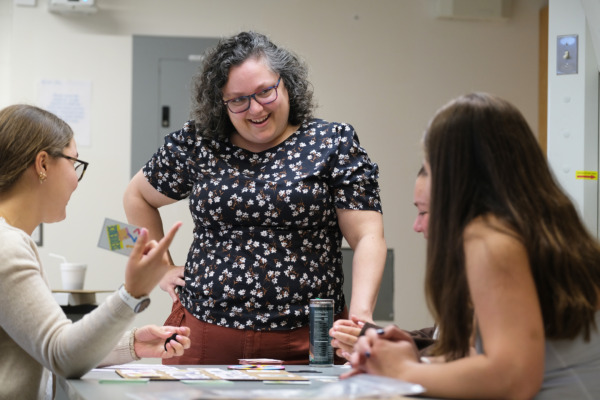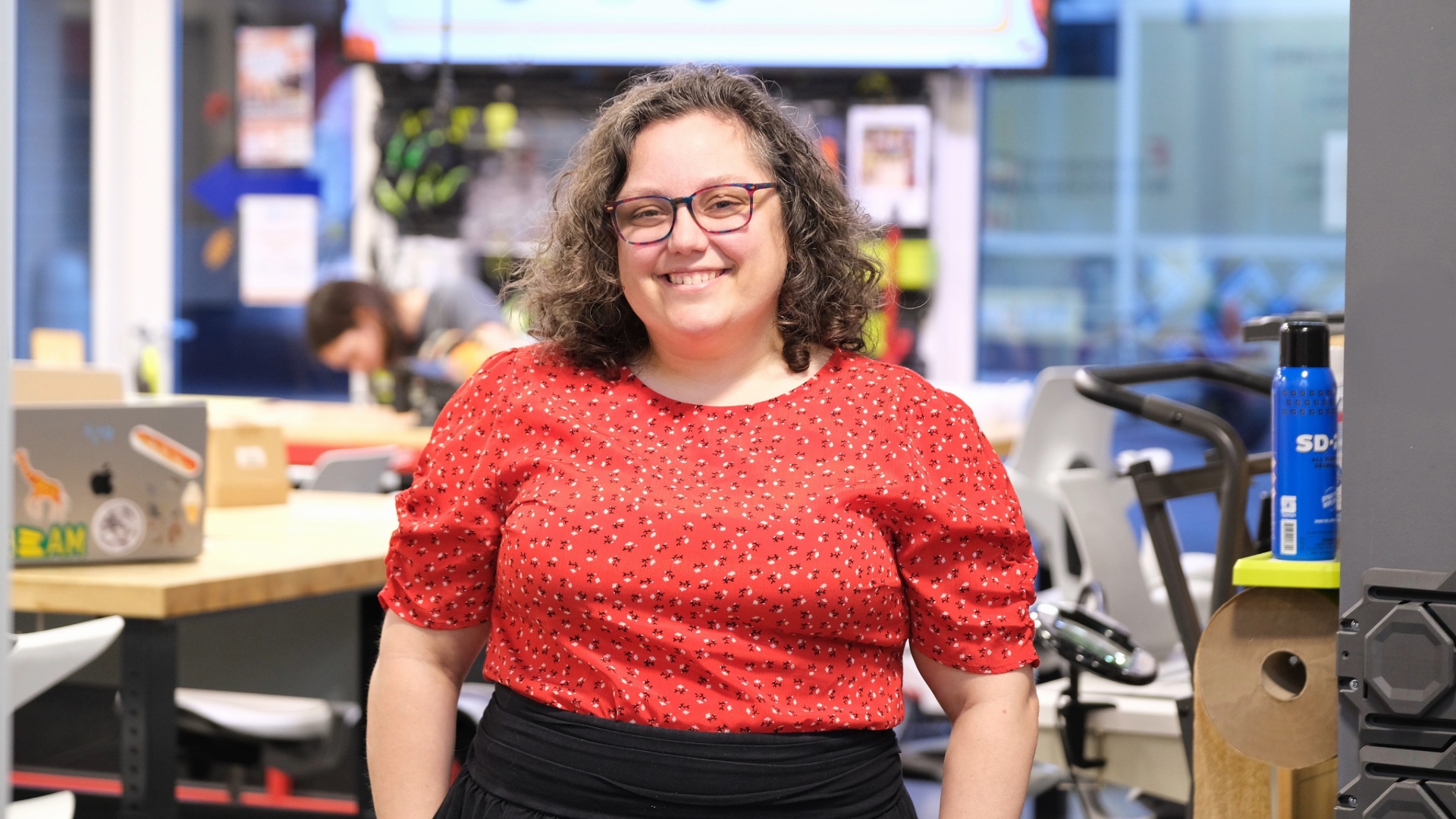When Anna Engelke (M.A. ’17) joined the inaugural cohort of the Master of Arts in Educational Innovation, Technology, and Entrepreneurship (MEITE) program in 2016, she wasn’t just pursing a new degree —she was seeking answers to her questions about technology and teaching. Today, in her role at Carolina’s BeAM makerspaces, Engelke’s work is a direct reflection of the interdisciplinary mindset she cultivated in MEITE and now fosters in others across campus.
Engelke’s story began in the laughter-filled labs of the Museum of Life and Science in Durham, where she interned during her senior year at UNC-Chapel Hill, where she majored in English and Spanish. She had always pictured teachers as experts who commanded a room — a role she never imagined for herself. But at the museum, guiding group after group through hands-on lab activities, Engelke discovered that teaching could be conversational and relational.
After graduation, Engelke became program manager for tinkering and technology education at the museum, where she developed technology-based programs for learners of all ages.
“I felt like I was very good at teaching, but I didn’t understand why,” Engelke said. “I knew some things worked; some things didn’t. I could iterate my way into it, but I needed more guidance. I needed more language.”
Almost on cue, a coworker sent her a flyer for a new master’s program at the UNC School of Education — one that aligned perfectly with her interests in technology, educational research, and design thinking. It was the combination of that flyer and her desire to better understand her intuitive approach to teaching that led her to MEITE.
“It was a very scary decision to make the leap and leave this place that I loved, my first real job,” Engelke said. “But the program was so exciting and interesting to me that I thought, ‘Let’s do it. Let’s try it.’”
An experiment in education
For Engelke, joining MEITE’s inaugural cohort was its own kind of experiment, much like those she ran at the museum. From day one, she and her classmates explored their interests, shaped their own curriculum with flexible course offerings, and helped lay the groundwork for the program’s future.
“I had been working until then and had a good sense of what my strengths and weaknesses were,” Engelke said. “I was able to work collaboratively with the faculty to ask, ‘How do I round myself out as a professional, as an educator? What do I want to learn from this experience?’”
She found herself connecting threads she hadn’t known existed, taking classes from Kenan-Flagler Business School, the Department of Computer Science, and the School of Education, even going beyond theCarolina campus through an inter-institutional agreement with Duke University.
“The program gave me access to classes that were helping me understand the theoretical basis for why iteration and reflection were important in education.”
Creating spaces for collaboration
After graduating from MEITE in 2017, Engelke joined BeAM makerspaces, Carolina’s network of open-access creative spaces featuring technologies like 3D printers, laser cutters, and digital embroidery. As program coordinator, she partnered with faculty across 30 departments to integrate design into courses, connecting unexpected subjects like classics and physics with technology and making.
The interdisciplinary skills she developed in MEITE gave her the foundation to thrive in a space where disciplines intersect every day.

Now, as education program manager, Engelke leads BeAM’s staff development and collaborates across campus to expand access to technology for courses, student organizations, and research.
“An element of integrating makerspaces into course design is recognizing that I don’t need to know everything about a subject,” Engelke said. “If I work with faculty in that field and draw on what I know about design, making, and how people learn from the MEITE program, I can collaborate with them to create a high-impact project that helps students learn.”
One of Engelke’s most rewarding projects was partnering with her former MEITE mentor, Keith Sawyer, to create EDUC 571 “The Maker Movement and Education,” a course that challenges students to bring making into any field. Recently, students put their skills to the test designing original tabletop games. Read more about the project.
Looking forward
As MEITE celebrates its 10th anniversary, Engelke finds herself reflecting not only on the program’s growth, but also on what the next decade could look like. She hopes the program will continue to innovate and build support structures that help students pursue the questions that bring them there in the first place.
“My hope is that MEITE will keep adapting to the changing landscape of education and empowering students to make a lasting impact as they go — just as it did for me.”
During the 2025-26 academic year, the MEITE program celebrates 10 years of preparing graduates to shape the future of learning for the social good — blending technology, research, and design thinking to deliver impactful solutions across schools, startups, nonprofits, and beyond.
